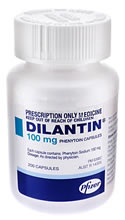Top Class Actions’s website and social media posts use affiliate links. If you make a purchase using such links, we may receive a commission, but it will not result in any additional charges to you. Please review our Affiliate Link Disclosure for more information.

Dilantin is a drug that can control and mitigate certain types of seizures. It is a common drug, and can be a godsend for epileptics and others plagued with seizures. In fact, the World Health Organization considers the drug among the basic requirement for a functional healthcare system. Unfortunately, some patients can experience SJS from Dilantin.
SJS is an autoimmune reaction. This means that the immune system—which usually fights viruses, bacteria, and other invading parasites malfunctions and attacks the body’s own tissues.
In the case of SJS, the body attacks the skin. The reaction starts out with flu-like symptoms such as fever, chills, and muscles aches. In fact, these symptoms are common to many disorders, since they reflect the body mounting a serious immune response. In these early stages, physicians often mistake SJS for the flu. However, the symptoms rapidly escalate to blisters, then sores, and ultimately ulcers on the skin, mucus membranes, and the eyes. The damage is painful and can result in permanent scarring, disability and blindness.
While it is known that nearly all cases of SJS are triggered by various medications, it is almost impossible to predict who will develop SJS in response to what drug. However, one gene is linked to an increased risk of developing SJS in response to Dilantin.
The allele HLA-B*1502 has been linked to an increased risk of SJS from Dilantin and other drugs. An allele is a version of a gene. Take eye color, for example. In this example, the gene for eye color would come in different alleles for different eye colors. One allele would code for brown eyes, one allele would code for blue, and so on.
The HLA gene’s function is a bit harder to visualize. The HLA gene codes for protein immune cells used to recognize foreign material, like viruses and bacteria. “HLA” is short for “Human Leukocyte Antigen,” referring to a specific immune cell that uses this gene. It has been discovered that Dilantin is more likely to trigger SJS in some people with the HLA-B*1502 allele.
Like many aspects of SJS, the relationship between HLA-B*1502 and SJS is not perfectly straightforward. For starters, the allele only seems to make people of East Asian descent, including those from India, Southeast Asia, China, Japan, and Korea, more susceptible to Dilantin-induced SJS. The gene is found in other populations, but it does not seem to have the same effect on people from other regions.
Other populations may have a second gene that blocks this effect of HLA-B*1505. Additionally, not everyone with the HLA-B*1502 allele goes on to develop SJS when they take Dilantin, and not everyone who develops SJS from Dilantin has this allele. Still, the link is strong enough that genetic testing is recommended for people of East Asian descent before taking Dilantin.
In general, Dilantin Stevens Johnson Syndrome lawsuits are filed individually by each plaintiff and are not class actions.
Do YOU have a legal claim? Fill out the form on this page now for a free, immediate, and confidential case evaluation. The attorneys who work with Top Class Actions will contact you if you qualify to let you know if an individual lawsuit or class action lawsuit is best for you. Hurry — statutes of limitations may apply.
ATTORNEY ADVERTISING
Top Class Actions is a Proud Member of the American Bar Association
LEGAL INFORMATION IS NOT LEGAL ADVICE
Top Class Actions Legal Statement
©2008 – 2024 Top Class Actions® LLC
Various Trademarks held by their respective owners
This website is not intended for viewing or usage by European Union citizens.
Get Help – It’s Free
Join a Free Dilantin Stevens Johnson Syndrome Class Action Lawsuit Investigation
If you or a loved one were diagnosed with Stevens Johnson Syndrome (SJS) or toxic epidermal necrolysis (TEN) after taking a prescribed or over-the-counter medication, like Dilantin, you may be eligible to take legal action against the drug’s manufacturer. Filing an SJS lawsuit or class action lawsuit may help you obtain compensation for medical bills, pain and suffering, and other damages. Obtain a free and confidential review of your case by filling out the form below.
An attorney will contact you if you qualify to discuss the details of your potential case at no charge to you.
Oops! We could not locate your form.












